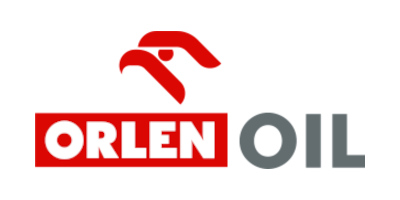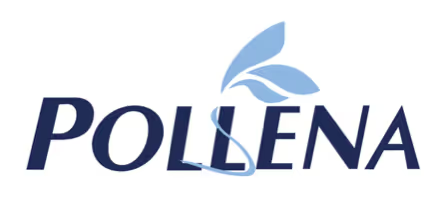Energy transformation of enterprises
We increase energy efficiency and reduce costs in the company, measure and reduce our carbon footprint, seek subsidies and help report on ESG.

Among other things, they trusted us:







Who are we?
VIVERNO's mission is to support business with specialized competencies so that it operates efficiently and in accordance with the principles of sustainable development. We provide our clients with comprehensive strategic, grant, implementation and reporting support. This is possible thanks to a wide and experienced group of experts. VIVERNO consultants were responsible for several hundred studies, calculations and models for more than 200 clients.
Our services
Carbon footprint and decarbonization
You can't manage something you don't know well, and the carbon footprint is growing into a key aspect of sustainability. From the analysis of the carbon footprint of the enterprise and the product (in all ranges and phases), through dedicated decarbonization strategies to comprehensive reporting. This is how we work with companies on emissions.
Our services in this area:
Real Estate Services
Our life takes place mainly in buildings: home, work, school. About 30% of greenhouse gas emissions in the European Union come from the real estate sector (EEA, 2023). It is not surprising that the industry is covered by further regulations. We have effective solutions for this.
Our services in this area:
Subsidies
We increase the profitability of investments through external financial means. Obtaining them is often a key factor in the transition of a project to the implementation phase. At VIVERNO we have extensive competence and experience in the field of efficient and effective acquisition of business grants.
Our services in this area:
Our realizations
Pollena S.A. was faced with the need to carry out a complete analysis of the organization's carbon footprint in all three areas. This was crucial to meet the expectations of business partners and to report to the CDP. The company already had previous experience in calculating the carbon footprint in ranges 1 and 2 (also implemented with VIVERNO), but the real challenge arose with the scope 3 calculated for the first time. Already at the conceptualization stage of the project, it was known that due to the requirements of the value chain, the carbon footprint analysis would be subject to third-party verification.
VIVERNO was responsible for preparing the sheets and surveys, which made it much easier for us to collect the required data. This structured approach to collecting information allowed us to analyze the data provided more effectively and to select the appropriate coefficients. Thanks to their support, we have calculated the carbon footprint according to the GHG Protocol standard.
In response to the customer's needs, we developed a detailed plan for calculating the carbon footprint in ranges 1, 2 and 3. We guided the client through the selection of the range 3 category, helped to identify all emission sources and created appropriate forms. It should be noted that the 3 range covered as many as 10 categories, including such demanding parts as category 1: Purchased goods and services.
We have also prepared a team on the client side to be able to efficiently implement each stage. In addition, we selected qualitatively appropriate indicators, guided by the hierarchy of indicators contained in the GHG Protocol standard. The company's carbon footprint analysis report showed the company a complete picture of its operations in terms of greenhouse gas emissions. The calculation became part of the disclosure to the CDP and also formed the basis for the development of a decarbonization strategy.
Due to the entry into force of new regulations on imports of high-carbon goods from outside the EU, the customer was obliged to submit CBAM reports. Contact with producers outside the European Union turned out to be an undoubted challenge. VIVERNO's task was to identify goods covered by the CBAM mechanism, to contact suppliers/manufacturers in order to obtain the necessary data and to periodically prepare and submit reports in the interim register.
We would like to express our satisfaction with the cooperation with VIVERNO, which supports us in the field of CBAM reporting. With extensive experience working with clients in the energy and environmental industries, this company offers comprehensive CBAM reporting support, including analysis of customer needs, data collection, calculation and report preparation as required.
In the first place, we conducted an analysis of customs declarations to identify goods covered by the CBAM. We have prepared dedicated materials to facilitate the collection of basic installation data. In addition, we have provided information materials and guides prepared by the European Commission to raise awareness of the CBAM requirements of DOMEX's trading partners.
Thanks to our support, the client was able to submit the report on time according to all the requirements. Currently, we continue to work on obtaining real data so that subsequent reports are based on values coming directly from the manufacturer's installation. Based on our experience in calculating the carbon footprint of a product, in order to improve the process of collecting data on actual emissions, we have developed an individual instruction for the form made available by the EC. In addition, we have prepared an internal policy setting out the principles for the implementation of the CBAM reporting obligation in the organization.
In 2024, POLLENA S.A. was once again decided to disclose environmental information through CDP. This time the questionnaire focused on the issue of climate change and the impact on water resources. VIVERNO's task was to support the company in creating point scenarios, preparing the company to develop the data necessary for disclosure and filling out a questionnaire in the CDP portal.
VIVERNO experts dedicated to our project showed extraordinary responsiveness and readiness to help at any time. Their availability and commitment were invaluable, which made the entire reporting process much easier for us. Although we had to complete a certain part of the tasks ourselves, due to the specifics of the specific questions included in the form, we also received valuable support in these areas. The experts also provided us with relevant recommendations, which allowed us to better understand how our actions fit into a broader relationship of sustainability and transparency.
The cooperation with POLLENA on the CDP report covered all stages of the company's preparation for disclosure. Initially, we conducted an analysis of the company's carbon footprint in all 3 ranges in accordance with the requirements of the GHG Protocol standard, which allowed for a more comprehensive response in CDP regarding the manufacturer's emissivity. As you know, the CDP system evolves and constantly makes changes in the guidelines, question formulas, scoring methodology, as well as the appearance of the questionnaire. Therefore, we got acquainted with all the updates in detail.
Then, we prepared our own data aggregation tools to ensure the easy flow of information. We have also developed a separate form for analysing risks and opportunities related to climate and water. At all times, we provided full support both in terms of content and organization.
Do you have any questions? We have the answers!
Does VIVERNO count the company's carbon footprint in all 3 ranges?
Yes, at VIVERNO we carry out the calculation of the company's carbon footprint in the full spectrum, i.e. all 3 ranges.
Does ESG reporting have to include taxonomic disclosures?
Taxonomy is mandatory for entities that prepare sustainability reports under the Corporate Sustainability Reporting Directive (CSRD).
To what extent does VIVERNO offer ESG consulting for reporting?
Our clients go through all the reporting stages provided for by the European Sustainability Reporting Standards (ESRS). We investigate, among other things, financial and operational control/dependence criteria, conduct thorough regulatory analysis, check competitive disclosures, analyze stakeholders, perform dual significance assessments, select AR16 indicators with mapping to ESRS disclosures, determine critical points for data collection and prepare information collection models for teams within the company. In the next steps, we verify the historical data, obtain and standardize the data and prepare the content of the report. The composition of the report can also be enriched with graphic design.
What does the price of an energy audit of an enterprise depend on?
The cost of the study depends, among others, on the size of the audited enterprise, the number of processes or the number of plants.
What is the Competitiveness Base?
It is an online database of offers containing announcements of beneficiaries. The publication of announcements is a prerequisite for meeting the so-called competitiveness principle. Any investment over 50 thousand. PLN should be included in the database. The principle of competitiveness applies to beneficiaries benefiting from the European Regional Development Fund, the European Social Fund and the Cohesion Fund and is regulated at the level of the guidelines on eligibility of expenditure.
Request a free consultation with a VIVERNO expert
If you need advice, have questions about our services or would like a quote, please leave your details, call or send us an email.
































